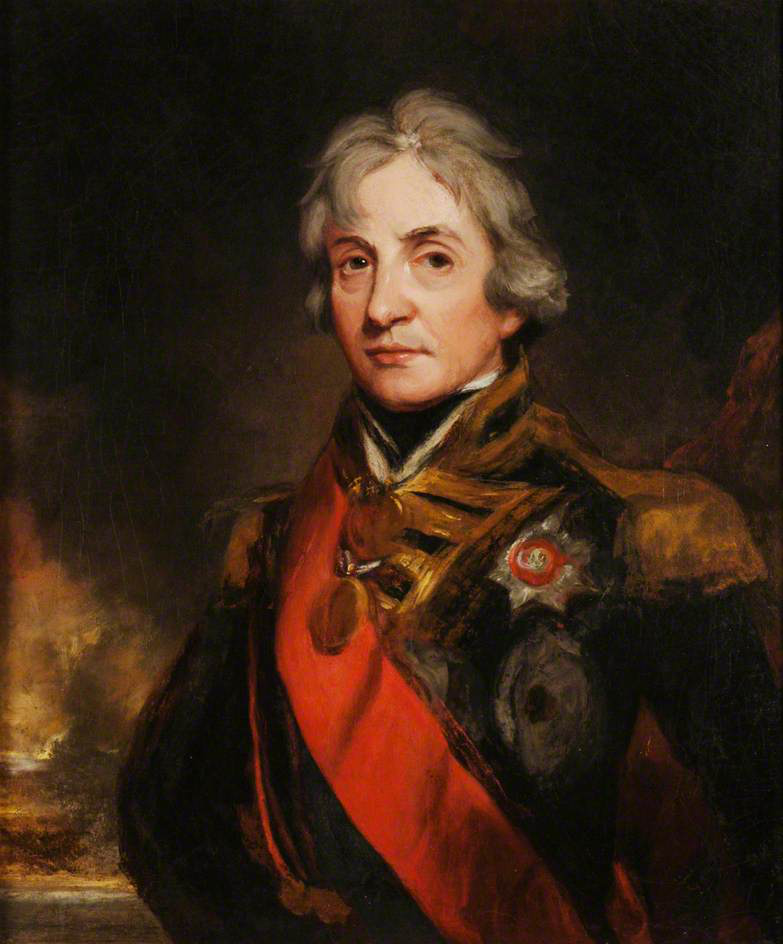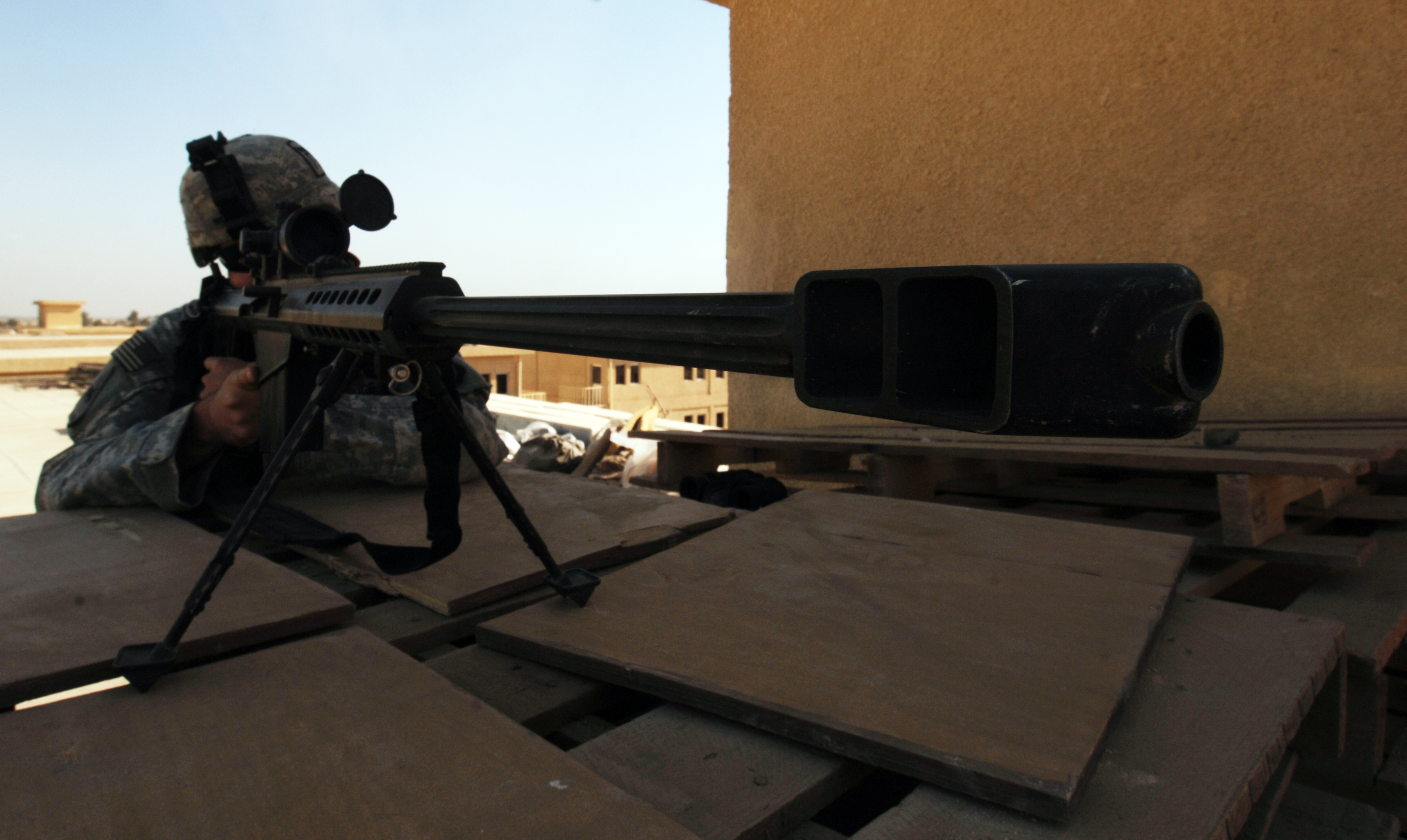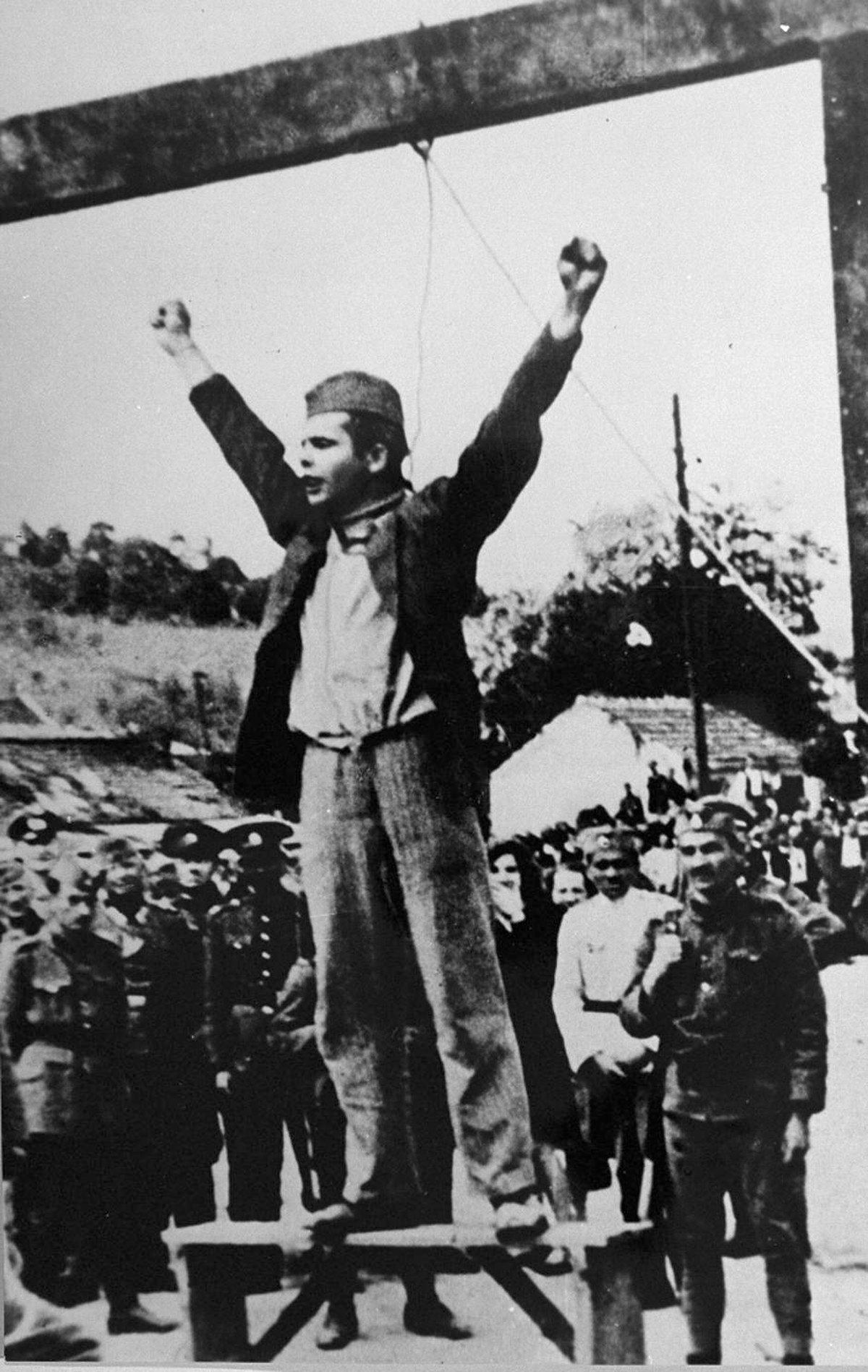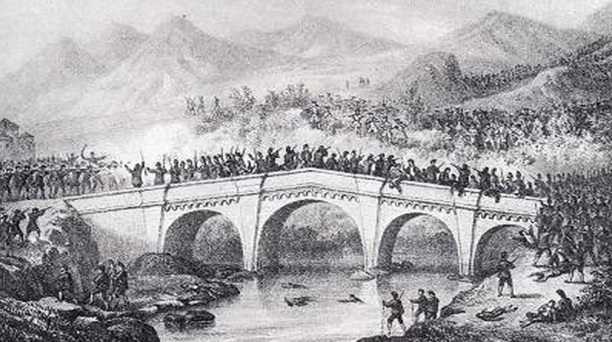|
Siege Of San Fiorenzo
The siege of San Fiorenzo (or Siege of Saint-Florent ) was a British military operation, supported by Corsican partisans early in the French Revolutionary Wars against the French-held town of Saint-Florent, Haute-Corse, San Fiorenzo on the Mediterranean island of Corsica. The Corsican people had risen up against the First French Republic, French Republican garrison in 1793 after an attempt to arrest the Corsican leader Pasquale Paoli during the Reign of Terror. The French had then been driven into three fortified towns on the northern coast; San Fiorenzo, Calvi, Haute-Corse, Calvi, and Bastia and Paoli appealed to the British Royal Navy's Mediterranean Fleet, commanded by Samuel Hood, 1st Viscount Hood, Lord Hood, for assistance against the French garrison. In the autumn of 1793 Hood was distracted by the Siege of Toulon, but did send a squadron with orders to attack San Fiorenzo. The attack achieved initial success but was driven off by the fortifications at the Torra di Fornali. ... [...More Info...] [...Related Items...] OR: [Wikipedia] [Google] [Baidu] |
Invasion Of Corsica (1794)
The invasion of Corsica was a campaign fought in the spring and summer of 1794 by combined British military and Corsican irregular forces against a French garrison, early in the French Revolutionary Wars. The campaign centred on sieges of three principal towns in Northern Corsica; San Fiorenzo, Bastia and Calvi, which were in turn surrounded, besieged and bombarded until by August 1794 French forces had been driven from the island entirely. Corsica is a large island in the Ligurian Sea; naval forces stationed on the island have ability to exercise control over the waters off the coast of Southern France and Northwestern Italy. This was a principal theatre of the early French Revolutionary Wars, and the British commander in the region, Lord Hood, viewed control of Corsica as a vital component of his blockade of the French fleet based at Toulon. Corsica had been annexed by France in 1768, and the population had been resentful and rebellious ever since. The fervour of the French Re ... [...More Info...] [...Related Items...] OR: [Wikipedia] [Google] [Baidu] |
Samuel Hood, 1st Viscount Hood
Samuel Hood, 1st Viscount Hood (12 December 1724 – 27 January 1816) was an Admiral (Royal Navy), admiral in the Royal Navy. As a junior officer he saw action during the War of the Austrian Succession. While in temporary command of , he drove a French ship ashore in Audierne, Audierne Bay, and captured two privateers in 1757 during the Seven Years' War. He held senior command as North America and West Indies Station, Commander-in-Chief, North American Station and then as Leeward Islands Station, Commander-in-Chief, Leeward Islands Station, leading the British fleet to victory at Battle of the Mona Passage in April 1782 during the American Revolutionary War. He went on to be Commander-in-Chief, Portsmouth, then First Sea Lord, First Naval Lord and, after briefly returning to the Portsmouth command, became Mediterranean Fleet, Commander-in-Chief, Mediterranean Fleet during the French Revolutionary Wars. His younger brother was Admiral Alexander Hood, 1st Viscount Bridport (1726–1 ... [...More Info...] [...Related Items...] OR: [Wikipedia] [Google] [Baidu] |
Toulon
Toulon (, , ; oc, label= Provençal, Tolon , , ) is a city on the French Riviera and a large port on the Mediterranean coast, with a major naval base. Located in the Provence-Alpes-Côte d'Azur region, and the Provence province, Toulon is the prefecture of the Var department. The Commune of Toulon has a population of 176,198 people (2018), making it France's 13th-largest city. It is the centre of an urban unit with 580,281 inhabitants (2018), the ninth largest in France. Toulon is the third-largest French city on the Mediterranean coast after Marseille and Nice. Toulon is an important centre for naval construction, fishing, wine making, and the manufacture of aeronautical equipment, armaments, maps, paper, tobacco, printing, shoes, and electronic equipment. The military port of Toulon is the major naval centre on France's Mediterranean coast, home of the French aircraft carrier ''Charles de Gaulle'' and her battle group. The French Mediterranean Fleet is based in Toulon. ... [...More Info...] [...Related Items...] OR: [Wikipedia] [Google] [Baidu] |
Blockade
A blockade is the act of actively preventing a country or region from receiving or sending out food, supplies, weapons, or communications, and sometimes people, by military force. A blockade differs from an embargo or sanction, which are legal barriers to trade rather than physical barriers. It is also distinct from a siege in that a blockade is usually directed at an entire country or region, rather than a fortress or city and the objective may not always be to conquer the area. While most blockades historically took place at sea, blockades are also used on land to prevent entrance of an area. For example, Armenia is a landlocked country that Turkey and Azerbaijan blockade. Thus, Armenia cannot conduct international trade through those countries, and mainly trades through Georgia. This restricts the country's economic development. A blockading power can seek to cut off all maritime transport from and to the blockaded country; although stopping all land transport to an ... [...More Info...] [...Related Items...] OR: [Wikipedia] [Google] [Baidu] |
Snipers
A sniper is a military/paramilitary marksman who engages targets from positions of concealment or at distances exceeding the target's detection capabilities. Snipers generally have specialized training and are equipped with high-precision rifles and high-magnification optics, and often also serve as scouts/observers feeding tactical information back to their units or command headquarters. In addition to long-range and high-grade marksmanship, military snipers are trained in a variety of special operation techniques: detection, stalking, target range estimation methods, camouflage, tracking, bushcraft, field craft, infiltration, special reconnaissance and observation, surveillance and target acquisition. Etymology The name "sniper" comes from the verb "to snipe", which originated in the 1770s among soldiers in British India in reference to shooting snipes, a wader that was considered an extremely challenging game bird for hunters due to its alertness, camouflaging color an ... [...More Info...] [...Related Items...] OR: [Wikipedia] [Google] [Baidu] |
Partisan (military)
A partisan is a member of an irregular military force formed to oppose control of an area by a foreign power or by an army of military occupation, occupation by some kind of insurgent activity. The term can apply to the field element of resistance movements. The most common use in present parlance in several languages refers to Resistance during World War II, occupation resistance fighters during World War II, especially under the Yugoslav Partisans, Yugoslav partisan leader Josip Broz Tito. History before 1939 The initial concept of partisan warfare involved the use of militia , troops raised from the local population in a war zone (or in some cases regular forces) who would operate behind enemy front line , lines to disrupt communications, seize posts or villages as forward-operating bases, ambush convoys, impose war taxes or contributions, raid logistical stockpiles, and compel enemy forces to disperse and protect their base of operations. George Satterfield has analyse ... [...More Info...] [...Related Items...] OR: [Wikipedia] [Google] [Baidu] |
National Convention
The National Convention (french: link=no, Convention nationale) was the parliament of the Kingdom of France for one day and the French First Republic for the rest of its existence during the French Revolution, following the two-year National Constituent Assembly and the one-year Legislative Assembly. Created after the great insurrection of 10 August 1792, it was the first French government organized as a republic, abandoning the monarchy altogether. The Convention sat as a single-chamber assembly from 20 September 1792 to 26 October 1795 (4 Brumaire IV under the Convention's adopted calendar). The Convention came about when the Legislative Assembly decreed the provisional suspension of King Louis XVI and the convocation of a National Convention to draw up a new constitution with no monarchy. The other major innovation was to decree that deputies to that Convention should be elected by all Frenchmen twenty-one years old or more, domiciled for a year and living by the produc ... [...More Info...] [...Related Items...] OR: [Wikipedia] [Google] [Baidu] |
Kingdom Of Great Britain
The Kingdom of Great Britain (officially Great Britain) was a Sovereign state, sovereign country in Western Europe from 1 May 1707 to the end of 31 December 1800. The state was created by the 1706 Treaty of Union and ratified by the Acts of Union 1707, which united the kingdoms of Kingdom of England, England (which included Wales) and Kingdom of Scotland, Scotland to form a single kingdom encompassing the whole island of Great Britain and its outlying islands, with the exception of the Isle of Man and the Channel Islands. The unitary state was governed by a single Parliament of Great Britain, parliament at the Palace of Westminster, but distinct legal systems – English law and Scots law – remained in use. The formerly separate kingdoms had been in personal union since the 1603 "Union of the Crowns" when James VI of Scotland became King of England and King of Ireland. Since James's reign, who had been the first to refer to himself as "king of Great Britain", a political un ... [...More Info...] [...Related Items...] OR: [Wikipedia] [Google] [Baidu] |
French Conquest Of Corsica
The French conquest of Corsica was a successful expedition by French forces of the Kingdom of France under Comte de Vaux, against Corsican forces under Pasquale Paoli of the Corsican Republic. The expedition was launched in May 1768, in the aftermath of the Seven Years' War. A French expeditionary force was landed on the island of Corsica, then ruled by the Corsican Republic. Marching inland to overcome any Corsican opposition, the French force initially suffered an unexpected defeat at the Battle of Borgo. But a new commander, the Comte de Vaux, was appointed to lead the expedition, and decisively defeated the Corsican army at the Battle of Ponte Novu in 1769, effectively bringing an end to Corsican resistance. The Corsican forces, having neither the willpower nor the manpower to resist the French, surrendered the island. After the Corsican defeat, France annexed the island, although they took a year consolidating the territory as many Corsicans took to the hills and enga ... [...More Info...] [...Related Items...] OR: [Wikipedia] [Google] [Baidu] |
French Revolution
The French Revolution ( ) was a period of radical political and societal change in France that began with the Estates General of 1789 and ended with the formation of the French Consulate in November 1799. Many of its ideas are considered fundamental principles of liberal democracy, while phrases like ''liberté, égalité, fraternité'' reappeared in other revolts, such as the 1917 Russian Revolution, and inspired campaigns for the abolition of slavery and universal suffrage. The values and institutions it created dominate French politics to this day. Its causes are generally agreed to be a combination of social, political and economic factors, which the ''Ancien Régime'' proved unable to manage. In May 1789, widespread social distress led to the convocation of the Estates General, which was converted into a National Assembly in June. Continuing unrest culminated in the Storming of the Bastille on 14 July, which led to a series of radical measures by the Assembly, i ... [...More Info...] [...Related Items...] OR: [Wikipedia] [Google] [Baidu] |
British Empire
The British Empire was composed of the dominions, colonies, protectorates, mandates, and other territories ruled or administered by the United Kingdom and its predecessor states. It began with the overseas possessions and trading posts established by England between the late 16th and early 18th centuries. At its height it was the largest empire in history and, for over a century, was the foremost global power. By 1913, the British Empire held sway over 412 million people, of the world population at the time, and by 1920, it covered , of the Earth's total land area. As a result, its constitutional, legal, linguistic, and cultural legacy is widespread. At the peak of its power, it was described as "the empire on which the sun never sets", as the Sun was always shining on at least one of its territories. During the Age of Discovery in the 15th and 16th centuries, Portugal and Spain pioneered European exploration of the globe, and in the process established large overse ... [...More Info...] [...Related Items...] OR: [Wikipedia] [Google] [Baidu] |










